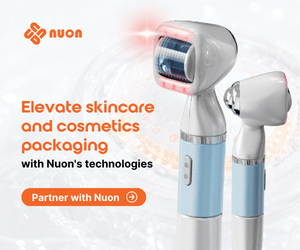From a gouged-out tub of Vaseline to a furtive squeeze of KY jelly, lube, somewhat ironically given its usage, has traditionally been a bit unsexy.
However, personal lubricant, much like its close relative intimate care, has undergone a glamorous makeover. Hot new names including Quim straddle the line between everyday care and sexual pleasure, with products like Happy Clam for daily usage and Oh Yes! latex-safe serum for more intimate moments, while most sex toy labels and condom brands have taken what feels like a natural step into branded lube.
“Everything has changed since 2003,” said Luka Matutinovic, CMO of Swedish luxury pleasure brand LELO, whose romantic accessories line-up includes water-based lubricants. “The entire landscape of sexuality is different now from what it was less than 20 years ago, and we’re proud to have been at the forefront. In terms of sex toy design and manufacture, the materials and thought process that now goes into pleasure products is better than it has ever been before.”
LELO’s philosophy, says Matutinovic, is: “What if our most intimate items were made as beautiful as the ones we displayed with the most pride?”
Smile Makers, meanwhile, creates vibrators, stimulants and lubricant for “solo and partnered moments of pleasure exploration”, according to Brand Director Cecile Gasnault.
She likewise observes a change in attitude – with Smile Makers at the vanguard of pushing for said change.
“When we started out ten years ago, we were the only brand in the category to focus on launching sexual wellness in mainstream retail,” she explains. “At the time, it was an uphill battle to convince fashion, beauty and lifestyle retailers to launch us, but to us, it was key to bring the category in everyday stores in order to change the way people perceive it and by extension, the way people perceive female sexual wellness.”
Sex’s shift into mainstream retail was cemented last month with beauty retailer Sephora making room on its shelves for names including Smile Makers and Maude.
Significantly, both the premiumisation of the sexual wellness category and its mainstreaming have converged with a post-Covid emphasis on the importance of human contact and sensual pleasure.


